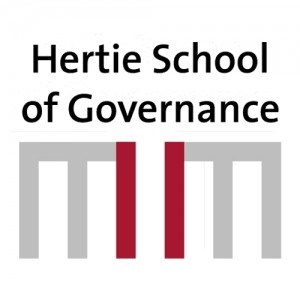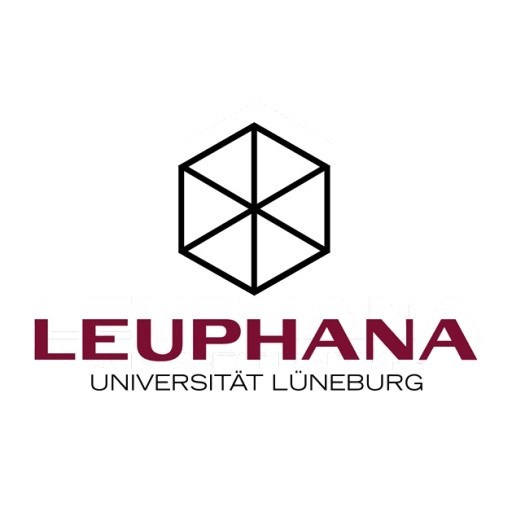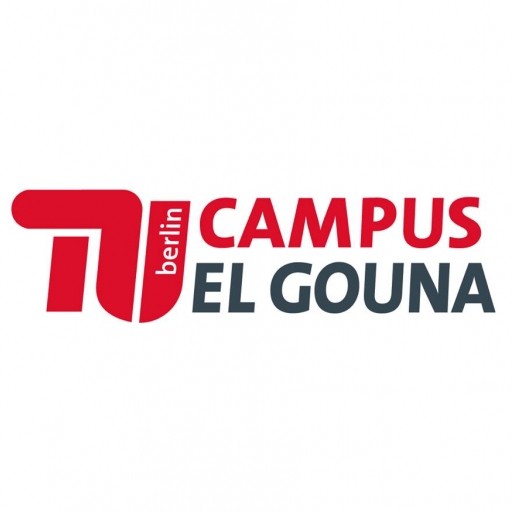The Executive MPA is a fully accredited international study programme directed at professionals from the private, public, and non-profit sectors. The programme combines interdisciplinarity, intersectorality and practice-oriented learning.
Too often, leaders in government, business, and civil society have a thorough understanding of their own fields, but lack the necessary experience and conceptual knowledge to effectively manage projects, budgets, teams, or changes in general. Moreover, in times of growing internationalisation and Europeanisation, managers need to have cross-sectoral management skills and the ability to shape and actively control complex decision-making processes. The Executive MPA programme helps to better understand these trends while at the same time allowing participants to cope better with the individual challenges they face in their professional fields. It combines political science, economics and social sciences to further students' understanding of complex governance challenges and management solutions. Participants work on international case studies and discuss phenomena against the background of their own work experience. Also, experts from the public, private and non-profit sectors regularly report on current issues and discuss them with students.
The flexibility of both time frame and content enables each participant to adapt the programme to his or her needs.
The programme is divided into fixed modules: core courses in Governance and Management (Modules 1 & 2), electives from a chosen area of concentration (Module 3) as well as additional electives (Module 4), skills courses as well as a 4-day workshop in Brussels or London (Module 5), and the Master's thesis (Module 6).
In Module 1 ("Understanding Governance"), participants learn about traditional and current governance challenges. The different kinds of actors operating in intersectoral networks are analysed, as well as the impact this phenomenon has on modern policy-making. Not only is governance analysed from an international and intersectoral perspective or with a focus on the interaction between various institutions from the same sector; intra-organisational aspects are dealt with in equal measure.
In Module 2 ("Management: Concepts, Instruments and Finances"), participants critically analyse and deal with various dimensions of management. They are provided with an overview of the key concepts of strategic management, performance management, leadership, and human resource management, which focuses on the underlying theories and main concepts. Participants also learn to assess and design measures and instruments necessary for long-term success. Moreover, this module elaborates on key issues of financial management in general and the public sector in particular.
A particular advantage of the Executive MPA programme is the wide range of electives, which suits participants' diversity of backgrounds and interests. The electives deepen the knowledge conveyed in the core courses. Participants choose six out of more than fifteen electives offered each year. While three of the chosen electives (Module 3: "Concentration") must be from one of the three Areas of Concentration ("Leadership and Management", "Economics, Finances, Methods", or "Intersectoral Management"), the other three electives (Module 4: "Complement") can be chosen from any of the Areas of Concentration.
The "Professional Development" module (Module 5) provides participants with practical training in areas such as presentation, team-building, conflict mediation, project management, or negotiation (skills courses).
Furthermore, participants gain in-depth insights into challenges of public management by visiting key institutions of the British Public Administration (workshop in London) or of the European Administration (workshop in Brussels).
Participants complete their studies with the Master's thesis (Module 6), which they usually undertake in cooperation with a practical partner.
Too often, leaders in government, business, and civil society have a thorough understanding of their own fields, but lack the necessary experience and conceptual knowledge to effectively manage projects, budgets, teams, or changes in general. Moreover, in times of growing internationalisation and Europeanisation, managers need to have cross-sectoral management skills and the ability to shape and actively control complex decision-making processes. The Executive MPA programme helps to better understand these trends while at the same time allowing participants to cope better with the individual challenges they face in their professional fields. It combines political science, economics and social sciences to further students' understanding of complex governance challenges and management solutions. Participants work on international case studies and discuss phenomena against the background of their own work experience. Also, experts from the public, private and non-profit sectors regularly report on current issues and discuss them with students.
The flexibility of both time frame and content enables each participant to adapt the programme to his or her needs.
The programme is divided into fixed modules: core courses in Governance and Management (Modules 1 & 2), electives from a chosen area of concentration (Module 3) as well as additional electives (Module 4), skills courses as well as a 4-day workshop in Brussels or London (Module 5), and the Master's thesis (Module 6).
In Module 1 ("Understanding Governance"), participants learn about traditional and current governance challenges. The different kinds of actors operating in intersectoral networks are analysed, as well as the impact this phenomenon has on modern policy-making. Not only is governance analysed from an international and intersectoral perspective or with a focus on the interaction between various institutions from the same sector; intra-organisational aspects are dealt with in equal measure.
In Module 2 ("Management: Concepts, Instruments and Finances"), participants critically analyse and deal with various dimensions of management. They are provided with an overview of the key concepts of strategic management, performance management, leadership, and human resource management, which focuses on the underlying theories and main concepts. Participants also learn to assess and design measures and instruments necessary for long-term success. Moreover, this module elaborates on key issues of financial management in general and the public sector in particular.
A particular advantage of the Executive MPA programme is the wide range of electives, which suits participants' diversity of backgrounds and interests. The electives deepen the knowledge conveyed in the core courses. Participants choose six out of more than fifteen electives offered each year. While three of the chosen electives (Module 3: "Concentration") must be from one of the three Areas of Concentration ("Leadership and Management", "Economics, Finances, Methods", or "Intersectoral Management"), the other three electives (Module 4: "Complement") can be chosen from any of the Areas of Concentration.
The "Professional Development" module (Module 5) provides participants with practical training in areas such as presentation, team-building, conflict mediation, project management, or negotiation (skills courses).
Furthermore, participants gain in-depth insights into challenges of public management by visiting key institutions of the British Public Administration (workshop in London) or of the European Administration (workshop in Brussels).
Participants complete their studies with the Master's thesis (Module 6), which they usually undertake in cooperation with a practical partner.
Educational organisation
Participants can either study full-time over a period of one year, or complete the programme over a period of two years if they wish to study part-time while working.In addition, there is also the opportunity to prolong the studies (or to take a study break) and to complete the programme within a period of three or four years.
The curriculum includes 46 days of attendance, with approx. 20 days per year falling on weekdays. Courses take place in blocks of two or three days each. The block system makes it possible for professionals who live outside of Berlin, outside of Germany, or even outside of Europe to study part-time. Currently, around 30% of the students live in Berlin, 20% live in other German cities and 50% travel to the courses from abroad. E-learning tools and a web-based learning system enable participants to combine work and study to an optimal extent.
The Master's programme offers participants both sound theoretical knowledge and tangible management skills. It draws on a modern mix of methods and emphasises practical applications. All courses of the Executive MPA are seminars with an average of 20 participants per course (in skills courses even less). An integral part of the instruction is group work in which participants work on selected cases, often proposed by participants from their direct field of work.
The courses are designed on an interdisciplinary and practice-related basis using the "convenor model": a lecturer is responsible for his/her subject and recruits other specialists from academia, the public sector, and the business world to join the course and share their expertise with the students.
Much attention is paid to the individual needs and interests of students. Each student is assigned a member of the faculty as his/her personal tutor. Participants evaluate their lecturers and the Master's programme at regular intervals, so that suggested improvements can be swiftly implemented.
Study abroad unit(s)
The curriculum includes a four-day workshop in either Brussels or London. Executive MPA participants may also participate in selected courses at Copenhagen Business School (CBS), ESCP Europe, the University of Bern and the Centre for Social Investment (CSI) at the University of Heidelberg, thus replacing one or more Executive MPA electives, and are invited to summer schools at international public management schools.Internships
Internships are not an integral part of the programme, but we support students who are interested in an internship at the beginning or the end of their studies.Forms of assessment
In most courses, assignments/transfer papers are the main form of assessment. They are usually due eight weeks after each course. Here, participants apply concepts discussed during the course to a specific case which may (but does not have to) be relevant to their professional background.There are no exams in the Executive MPA programme.
Course objectives
The Executive MPA provides essential qualifications needed for the modernisation of public administration by conveying management and leadership competencies and by deepening the understanding of challenges in governance. Professionals working for German and international administrations, private sector firms, non-profit and international organisations participate in the programme on a regular basis. Lawyers, economists and social scientists can gain management skills which they are unlikely to have acquired during their university training. The intersectoral, international and interdisciplinary blend of participants, faculty and experts makes the courses a unique forum for professional exchange and networking.The wide range of courses allows participants to mould their Executive MPA curriculum according to their interests and needs. Participants develop the skills needed to motivate their staff, design and improve management systems, increase both individual and organisational performance, initiate strategic developments, or promote organisational change and innovation. At the same time, the programme improves policy understanding and focuses on governance models that innovatively tackle cross-sectoral issues in the context of the growing geographic complexity of certain policy areas. Participants learn to assess future policy scenarios and to apply appropriate analytical methods for mastering them.
Language requirements
As the language of instruction at the Hertie School of Governance is English, candidates must be fluent in English.If a candidate is a native speaker or if he/she can provide proof of substantial work or study experience abroad, he/she may not have to provide a language test. Short-term study abroad, au-pair home stays or language school certificates will not be accepted as test replacements. More information on tests recognised by the Hertie School of Governance is available on our website.
Academic requirements
Applicants must have completed a higher education degree. Required is an equivalent of 240 ECTS (minimum of four years of studies), but if a candidate can show substantial work experience, 180 ECTS (three years) may suffice.Many applicants hold a degree in a subject closely related to public management (i.e. social science, economics, law, etc.), but the Executive MPA programme accepts and welcomes other academic backgrounds (natural sciences, language studies, engineering, etc.).
The Executive MPA is aimed at professionals with at least two years of professional experience (in the current student group, the average work experience of the participants is ten years). We welcome applications from public administration, international organisations, the private sector as well as the non-profit sector.
A modular entry is possible by way of the Executive Seminar & Certificate programme.
Enrolment fees
A campus fee applies to all enrolled students of the Hertie School (includes a public transport ticket for Berlin for full-time students who are not employed). More details are available on the Executive MPA website.Costs of living
Total living expenses in Berlin are relatively low compared to other global cities. They are estimated at about 1,200 EUR per month, including rent (550 EUR), health insurance (80 EUR), transport (70 EUR), and living costs (500 EUR).Funding opportunities within the university
Excellent candidates can apply for a scholarship (full/partial tuition waivers) for the Executive MPA programme. The funds are granted with a view to the quality of the application, the financial need of the applicant, as well as his/her contribution to the diversity of the student body. A selection committee of the Hertie School of Governance decides on admission and scholarships. Details on scholarships and the application procedure are available on the Executive MPA website.There are a range of additional financing opportunities including a modular entry into the programme or financial support from candidates' employers (the German Federal Public Administration and the German Railway corporation both provide financial support for their employees).
The Student Affairs team offers assistance in finding the right mix of financial resources in the form of grants and loans. The newest addition to our financial aid portfolio is the Hertie School Education Funds that are based on the idea of the reverse generational contract.
Tax advisers should also be consulted for more information about tax-deductions for professional training expenses.
More information on financing options is available online at http://www.hertie-school.org/empa/financing" target="_blank">http://www.hertie-school.org/empa/financing.
http://www.hertie-school.org/empa
Arrival support
All admitted students receive an information package with information on finding accommodation, health insurance, etc. Continuous further support is provided by our Student Affairs office.Services and support for international students
The Student Affairs office provides support with administrative issues such as residence permits, etc. The Executive MPA team offers continuous support to all students with regard to academic and organisational issues.The Hertie School's Career Services Centre intensively supports students and alumni in finding employment after graduation. In addition, several career workshops as well as a professional perspectives event series are offered to students.
Executive MPA graduates will become part of the active Hertie School of Governance Alumni Network.








